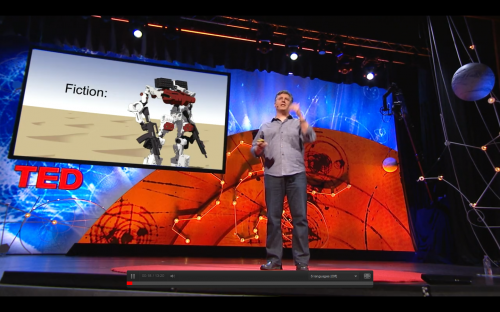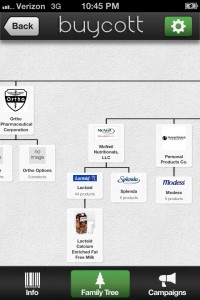Every new technology brings controversy. This short video poetically confronts one of the most important questions of our digital age: If we’re always connected through our devices, will we lose more important connections with other humans?
Millions of people have viewed it online. Do you think it will make a difference in how they view their technological tools?
Category: Chapter 10 Computer Security and Risks
 Blackmail isn’t just for low-life con artists anymore. Digital extortion—demanding ransom in return for not doing damage to critical computer systems—has become increasingly common in recent years. This Huffington Post has details.
Blackmail isn’t just for low-life con artists anymore. Digital extortion—demanding ransom in return for not doing damage to critical computer systems—has become increasingly common in recent years. This Huffington Post has details.
huffingtonpost.com/2014/03/28/hacker-blackmail_n_5048853.html
 Edward Snowden made a decision that changed the world. By leaking top secret government documents to the press, he revealed that US surveillance of private and public citizins goes far beyond what most of us had previously imagined. Because of those leaks, people all around the world are asking important questions about the balance between privacy and security in a free society. In a chilling statement to the BBC, Snowden claimed that he’d accomplished his mission by raising those questions. What do you think?
Edward Snowden made a decision that changed the world. By leaking top secret government documents to the press, he revealed that US surveillance of private and public citizins goes far beyond what most of us had previously imagined. Because of those leaks, people all around the world are asking important questions about the balance between privacy and security in a free society. In a chilling statement to the BBC, Snowden claimed that he’d accomplished his mission by raising those questions. What do you think?
theguardian.com/world/2013/dec/24/edward-snowden-channel-4-christmas-day-message
 The robot drone is rapidly changing the face of war—and peace. In this gripping TED talk Daniel Suarez describes the very real—and very scary—threats robotic weapons pose to civilized society. He makes a compelling case for an international treaty on robotic arms control and a global ban on killer robots.
The robot drone is rapidly changing the face of war—and peace. In this gripping TED talk Daniel Suarez describes the very real—and very scary—threats robotic weapons pose to civilized society. He makes a compelling case for an international treaty on robotic arms control and a global ban on killer robots.
http://www.ted.com/talks/daniel_suarez_the_kill_decision_shouldn_t_belong_to_a_robot.html
 Patents have been part of American life since the country was born—they were written into the constitution to legally protect and encourage innovation, creativity, and productivity. But today, patents are used by shadowy companies that make nothing more than profits—and the threat of lawsuits from these companies is enough to keep people from creating high-tech products, companies, and jobs. This episode of This American Life shines a bright light on the broken intellectual property legal system by telling the stories of people whose lives have been profoundly impacted by that system.
Patents have been part of American life since the country was born—they were written into the constitution to legally protect and encourage innovation, creativity, and productivity. But today, patents are used by shadowy companies that make nothing more than profits—and the threat of lawsuits from these companies is enough to keep people from creating high-tech products, companies, and jobs. This episode of This American Life shines a bright light on the broken intellectual property legal system by telling the stories of people whose lives have been profoundly impacted by that system.
thisamericanlife.org/radio-archives/episode/496/when-patents-attack-part-two
 Did you ever wonder who gets your money when you go shopping? You may, without knowing it, be donating your hard-earned cash to people and corporations who use it to fund campaigns that go against your beliefs and values. This Forbes article describes Buycott, a smart phone app that can instantly reveal the secret origins of the items in your shopping cart. Whether you’re concerned about a cleaner environment or a more equitable society or something else, technology can help you vote with your wallet every time you shop.
Did you ever wonder who gets your money when you go shopping? You may, without knowing it, be donating your hard-earned cash to people and corporations who use it to fund campaigns that go against your beliefs and values. This Forbes article describes Buycott, a smart phone app that can instantly reveal the secret origins of the items in your shopping cart. Whether you’re concerned about a cleaner environment or a more equitable society or something else, technology can help you vote with your wallet every time you shop.
forbes.com/sites/clareoconnor/2013/05/14/new-app-lets-you-boycott-koch-brothers-monsanto-and-more-by-scanning-your-shopping-cart/
What’s it like to be the world Jeopardy champion and lose to a computer? Ken Jennings can tell you, and he does in this engaging TED talk. From his unique perspective, he suggests that we can—and must—make a choice about the kind of future we want to have. Which world do you want to live in?
More about Watson:
 If you misspell a word in a paper or use the wrong font in a presentation, your error may be embarrassing. If you use the wrong formula in a spreadsheet, your error might be devastating. According to a recent study, the typical spreadsheet is riddled with math errors. This short Market Watch article should serve as a wake-up call to scientists, engineers, business people, students and others who do high-consequence work with numbers.
If you misspell a word in a paper or use the wrong font in a presentation, your error may be embarrassing. If you use the wrong formula in a spreadsheet, your error might be devastating. According to a recent study, the typical spreadsheet is riddled with math errors. This short Market Watch article should serve as a wake-up call to scientists, engineers, business people, students and others who do high-consequence work with numbers.
marketwatch.com/Story/story/print?guid=DB151EDA-A776-11E2-A57C-002128040CF6
A few short decades ago the Surui tribe lived a stone-age lifestyle in the heart of the Brazilian Amazon. Encroachment of modern civilization into their forest threatened their home—and their very existence. But today the tribe is using digital technology to help preserve the rainforest, the people that live there, and the health of our shared planet. This unlikely story is described in this NPR piece and the accompanying YouTube video.
npr.org/2013/03/28/175580980/from-the-stone-age-to-the-digital-age-in-one-big-leap
We’ve heard about how 3D printers can be used to manufacture toys, small machine parts, and even some prosthetic devices for human bodies. But as applications emerge, so do some difficult questions.
- According to this Wired story, a printed car might soon share the road with you. But for legal reasons, it might technically be a motorcycle.
- This NPR story explores some of the intellectual property questions raised by 3-D printers.
- It’s one thing to print a figurine of a copyrighted comic book character; printing a lethal weapon is something else altogether.
This NPR story explains how 3-D printers muddy the waters in the debate over gun safety.